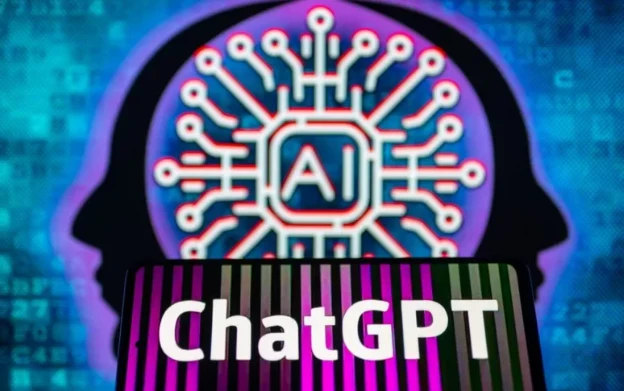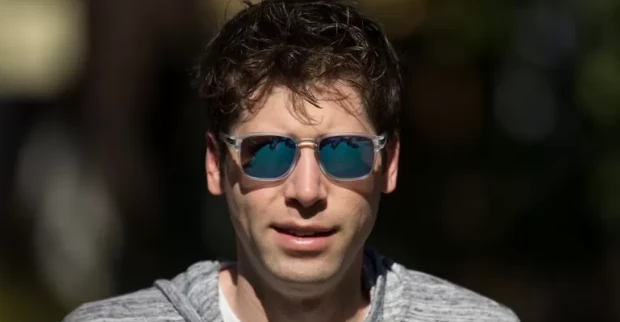Uncovering the Life of Sam Altman: An American Entrepreneur and Technologist Making Waves in AI
The first thing we did to find out about the life of Sam Altman was to ask ChatGPT, the revolutionary artificial intelligence system that he himself devised through the company he founded in 2015, OpenAI.
“Sam Altman is an American entrepreneur and technologist, known for being the president of OpenAI and formerly the CEO of Loopt,” the virtual robot that is being talked about has informed us and a lot since it was launched on November 30.
Also in his response, he made reference to the fact that he is considered an influential leader in the technological community and that he offers lectures on topics related to artificial intelligence.
A credible cover letter that is based on facts or generalizations but, as the system itself acknowledges, “does not make subjective statements about an individual’s personality or character.”
So we decided to consult slightly more traditional sources to learn about the man who is beginning to shape our present with a series of technological innovations such as the aforementioned ChatGPT and the DALL-E image generator.
The Rise of Sam Altman: From Programming Macintosh at 8 to Leading the AI Industry with OpenAI
Samuel H. Altman learned to program and disassemble one of Apple’s first computers, the Macintosh, when he was 8 years old, according to him in an interview with The New Yorker.
Altman said in that same interview that having a computer helped him with his sexuality, thanks to the conversations and groups he was able to participate in during his adolescence.
At 16 he told his parents that he is gay and then he said it openly at the school where he studied.
He later entered Stanford University (in Calfironia, USA) to study computer science, but did not finish the degree.
Together with some friends, he decided to dedicate himself completely to developing his first idea, Loopt, an application to share location with other people.
We are talking about the year 2005, long before WhatsApp existed and almost at the same time as the appearance of Facebook.
Loopt didn’t have much significance, but it did serve as a springboard to launch Altman’s career as an entrepreneur and opened the doors to the world of big technology investments.
And it is that one of the companies that supported Loopt in its beginnings was Y Combinator, one of the most prestigious and successful startup accelerators that invested in innovations such as Airbnb and DropBox.
Altman sold his first project for more than US$40 million, which allowed him to expand his areas of interest and invest in several of the ideas under the umbrella of Y Combinator, a company that he came to preside over between 2014 and 2019. .
It was in this period that he, together with Elon Musk, created OpenAI, a company that allowed him to immerse himself in a world that equally fascinated and feared him: that of artificial intelligence.

Although Elon Musk has parted ways with the company he founded with Altman, OpenAI, he continues to invest in artificial intelligence initiatives.
Can OpenAI Ensure Artificial Intelligence Benefits Humanity, or Will It End Up Enslaving Us?
OpenAI is a research company whose mission is, according to its website, to ensure that “artificial intelligence benefits all of humanity” and does not destroy it.
An idea in part driven by the fear expressed by Altman that artificial intelligence could become a lethal weapon against humans.
In the extensive report that Tad Friend wrote for The New Yorker in 2016, Altman talks about the need for a merger as the best possible scenario for the future.
“Either we enslave artificial intelligence or it will enslave us,” he said.
An idea shared by Musk, who, although he disassociated himself from OpenAI in 2018 due to what he called conflicts of interest with his main company Tesla, continues to invest in it and finances other projects that go along the same lines of achieving control of artificial intelligence. .
One of them is NeuraLink to try to connect our brain to computers.
The now owner of Twitter believes that only in this way will humans be able to keep up with artificial intelligence and not be displaced by it when these systems feed back.
“Our way of speaking will sound very slow to computers,” he said, “a kind of whale noise” clearly alluding to the ability of computers to process information in terabytes.
Gradual Introduction of AI Systems into Society: OpenAI’s Strategy for ChatGPT and DALL-E
That fatalistic vision of the future that drove Musk and Altman to get involved in artificial intelligence has also been what is determining OpenAI’s strategy with respect to ChatGPT and DALL-E.
“One of the things that we really believe is that the most responsible way to introduce these systems into society is gradually,” Altman said a few weeks ago in a conversation with StrictlyVC, a company that shows what’s happening in Silicon Valley and the technological world.
“This way we can get people, institutions and regulators familiar with it, thinking about the implications, feeling the technology and getting an idea of what it can and can’t do, instead of unleashing a super powerful system suddenly”.
A strategy that, according to the Dot CSV channel on YouTube, which specializes in informing and explaining artificial intelligence, marks a turning point with what has been the trend set by large technology companies in the last 20 years.
“There is a tendency for companies that are leading the way in artificial intelligence to act under the Silicon Valley motto of move fast and break things,” they comment, analyzing Altman’s words.
“That philosophy of being agile and releasing products without thinking about their implications.”
They emphasize that “in Sam’s case it is not about moving fast but about bringing out products that are still imperfect so that little by little society adapts to them.”
In a way, that’s what’s happening with ChatGPT and DALL-E, which are already receiving a lot of criticism from many quarters, including academia and creativity.
“ChatGPT is incredibly limited,” Altman acknowledged in a thread he posted to Twitter in December.
“But good enough at some things to create a false impression of greatness. It’s a mistake to trust him for anything important right now.”
Altman ended by saying that this is only a preview of what progress will be and that there is still a lot of work to be done regarding its solidity and veracity.
Something similar to what he wrote on that same social network in reference to the questions that he is receiving in the chat about the prejudices or biases that he has in his responses.
“We know that ChatGPT has weaknesses in terms of bias, and we are working to improve it,” he acknowledged.
“We are working to improve the default settings and make them more neutral, and also so that users can make our systems behave according to their individual preferences within broad limits.”
“This is more difficult than it seems and it will take us some time to get it done,” he justified at the end of his thread.

ChatGPT has already launched a new monthly subscription service, its plus version.
Altman’s Predictions for the Future of AI, Nuclear Fusion, and Gene Editing by 2025
Altman will turn 38 in April and recently revived a message from three years ago in which he predicted the “major technological developments to be achieved by 2025.”
Making nuclear fusion work at a prototype scale in a sustainable way, making artificial intelligence generally available to many people in the industry, and making gene editing a cure for at least one of the most important diseases that affect us.
In that tweet he mentions nuclear fusion, his other big concern.
Altman has spent years investing heavily to boost the research and development efforts of the company Helion Energy, which seeks to produce low-cost, clean electricity using a fuel derived exclusively from water.
There are still two years to go before we see if one or more of Altman’s predictions turns out to be a reality.
But of them, the one that is already being more tangible is that of artificial intelligence, of which we are witnessing the first steps of it thanks to OpenAI.
The company that Altman devised as part of a more global concept of what he believes will be the future and for which he has spent years focusing his investments on technological and scientific advances.
A future that, according to his words in the article in The New Yorker, one can imagine that it will be similar to the one that surrounds him.
“I unabashedly love this country, the best country in the world,” he said in reference to the United States, also assuring that democracy can only survive in an economy based on growth.
Position that he assumes as a commitment.
“Without the benefits of economic growth the experiment in democracy will fail,” he said.
Altman’s Journey to Billionaire Status: A Look at OpenAI’s Growth and Commitment to Reliable AI
During his career, Altman has been able to attract the capital of strong investors to finance projects that he approved during his time at Y Combinator and in which he has later invested.
Little is known exactly how much his net worth amounts to, but recently there have been several announcements projecting his growth towards the select group of billionaires.
OpenAI, which was born as a non-profit project, became a hybrid company with limited profits.
A few weeks ago The Wall Street Journal mentioned in an article that OpenAI was on its way to becoming one of the most thriving startups in the US with a value of US$29,000 million despite the few benefits it generates.
Shortly after, the multi-year multi-billion dollar agreement that the company reached with Microsoft became known with the promise of having a strong impact in the not too distant future “in personal computing, the Internet, smart devices and in the cloud.”
And this week we got to know the plus version of ChatGPT, a subscription service that is being tested in the US for which you have to pay US$20 a month.
Changes they say will not affect his commitment to creating reliable and secure artificial intelligence systems and products.
You’ll make it? That may be something that we can ask ChatGPT in the future.

